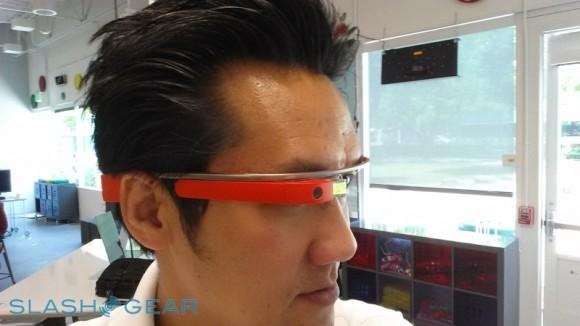Google Glass vs HTC One vs Olympus OM-D video shootout
With Google Glass finally in the hands of developers, and HTC's flagship One smartphone readily available around the globe it's time to test the video camera capabilities a bit, while also showing off some cool new technology. Get ready for a video capture comparison from Google Glass, the HTC One, and the Olympus OM-D camera. What makes this even better is you're getting an overload of technology, because this video shootout is done while also taking a peek at NVIDIA's SHIELD controlling the Parrot AR Drone.
So not only are we testing the camera capabilities of these three devices, but you'll also get an exclusive look at NVIDIA's Android game-console doubling as a remote as it controls and flies the Parrot AR Drone. Talk about gadget overload. There's a lot of different needs that come to mind when someone decides on a smartphone or camera, and here we'll be showing three different options, as well as their pros and cons.
Obviously with the HTC One you'll get full 1080p video capture using their Ultrapixel camera one the smartphone. Which is an experience that these days everyone is pretty familiar with. Flip on the camera and aim your smartphone at the subject. This is convenient, but then this is also where Google Glass just takes things up a notch. You'll enjoy nearly the same video experience, only completely hands-free. Everyone has mixed feelings about Google Glass, but being able to record demo videos for you guys, hands-on video, unboxings and more without a tripod and just using Glass is quite nice.

Google Glass in a way has opened up an entire new experience and way we easily and quickly record video. Yes you can attach a GoPro to your chest, but this is different. Below you'll see three videos. The first being a quick demo of the NVIDIA SHIELD recorded by Google Glass. The second will be with the HTC One. Then the third will be a back-and-forth video in a different setting comparing Glass to something like the Olympus OM-D camera.
Google Glass 720p video capture
As mentioned above, the simple and hands-free experience using Glass is nice, but you'll instantly notice the video is a little jerky at times. Here's where there are both pros and cons. Glass video is hands-free, easy to do, and convenient but you'll have to learn to hold that head of yours still. It takes some getting use to, and you might want to use hand gestures instead of turning your head, or moving it at all.
Then with Glass you only get 720p video capture on that 5 megapixel lens, but the quality is pretty excellent. You'll also notice just how wide the video is compared to the HTC One video below. Pay attention to colors, brightness, and even audio levels.
HTC One 720p video capture
To be fair we recorded this on 720p as well, just like Glass, and right away you'll notice the stability. Some image stabilization could help Glass, but it will only do so much. In general we're all familiar with recording video through our phones, and as a result, the end product is clear, crisp, and not all over the place. The HTC One video capture handled the changing light outdoors better, and overall the colors and contrast we're pretty even. You will however notice the audio capture on Glass wasn't very good, and it was much clearer from the HTC One.
Last but not least the third video we wanted to toss in for good measure has the Olympus OM-D E-M5 camera capturing some moments with NVIDIA SHIELD, then it switches to Google Glass. This might be harder to follow, but we had our head and Glass on NVIDIA as they explained SHIELD, then our Olympus OM-D on the product. So each time you see SHIELD it's through a dedicated camera, and the rest is shot with Google Glass.
While this last video isn't quite something you can "compare" it does however show you another set of options and opportunity with Glass. Being able to record the same situation and demo simultaneously, without having 3 arms. There's obviously advantages and disadvantages from each, but we wanted to give you the video and let you decide.
Does the loss of 1080p capture and slightly lower audio quality throw you off, or does the convenience and endless opportunity to record with Glass make it worth the trade off? You won't all be recording with two devices, but what about the Father holding a child in one hand, yet still capturing his daughters soccer game at the same time? That is just one example, but a good one.
Okay, okay, just get a tripod and shoot video with that Olympus instead. Like we said, pros and cons. Since Glass isn't evenly remotely close to being consumer ready, we won't talk about price, but that will obviously be another factor later on. So what do you guys think about it. Does the opportunity and ease of recording with Glass give it a leg up on cameras and smartphones? Not to mention you can do it all by voice, or will you still opt for a dedicated camera? These are just a few small examples of the many, but we wanted to share it with you all. Let us know what you think in the comments below.
